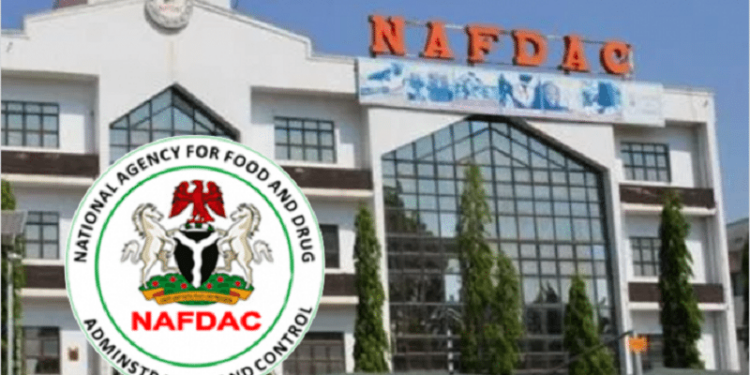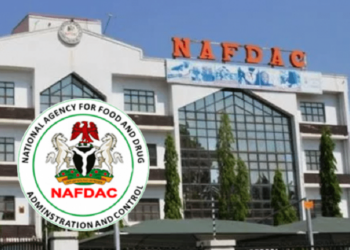Many entrepreneurs shy away from starting food or drug businesses due to the perceived difficulty of NAFDAC registration, while others attempt to bypass the process by cutting corners.
Obtaining a NAFDAC registration and certification is crucial for businesses in Nigeria that manufacture, import, export, or distribute food, drugs, cosmetics, chemicals, and medical devices.
Without this certification, businesses risk legal penalties, product confiscation, product recalls, closures or reputational damage, which can severely affect their operations and growth. ,
As such, businesses involved in the production or handling of consumable goods must comply with NAFDAC regulations to ensure consumer protection and maintain industry credibility.
The process can seem daunting, but it is often a lack of clear direction that makes it appear more challenging than it truly is.
This article provides the essential steps you need to follow to navigate the registration process smoothly.
Requirements for the registration
For micro-scale businesses, you must first ensure your business is registered with the Corporate Affairs Commission (CAC).
Additional required documents include a Site Use Agreement (if applicable), trademark approval, a vetting sample, three product labels, a fumigation certificate, and proof of payment for registration.
You’ll also need to submit food handlers’ or medical fitness certificates for your production staff, covering essential health tests like sputum, stool, urine, Widal, and Hepatitis B.
For small-scale businesses, along with the documents listed above, you will need to submit Standard Operating Procedures (SOPs) for various production aspects such as quality assurance, equipment cleaning, and packaging material handling.
You’ll also need certificates of analysis for raw materials and finished products, as well as health certificates for production staff. These documents must be uploaded to NAFDAC’s e-registration portal to complete the application process.
Registration procedures
- Obtaining the registration form and guidelines
You can access the registration form and guidelines online via the NAFDAC website: https://nafdac.gov.ng/our-services/msme/. Alternatively, the form can be collected from any NAFDAC State Office nationwide.
- Submission of documents
- Ensure you submit the following documents along with a completed registration form:
- Evidence of Registration with the Corporate Affairs Commission (CAC)
- Site Use Agreement (if applicable)
- Trademark Approval (recommended to protect your brand)
- Product sample for evaluation and three product labels
- Copy of receipt of payment for production registration
- Fumigation Certificate
- Payment receipt for production registration
- Food Handlers’ Certificates/Medical Fitness Certificates for production staff
- Before making payments, request payment advice from the NAFDAC desk officer to determine fees. Payments can then be made via Remita and receipts collected from the NAFDAC Accounts Department.
- Schedule a convenient date for your facility inspection, where samples will be taken for laboratory analysis, provided your Good Manufacturing Practices (GMP) and Good Hygiene Practices (GHP) are satisfactory.
- Once inspection and laboratory results meet NAFDAC standards, your product will be approved, and you will be notified to collect your registration certificate. This process typically takes about 90 working days from start to finish.
- Ensure your product label includes
- Product name, net weight/volume, and batch number
- Manufacturing and best-before dates
- Space for the NAFDAC registration number
- Allergy cautions (if applicable)
- Storage conditions, list of ingredients, and manufacturer’s details
By following these steps, businesses can successfully navigate the NAFDAC registration process, ensuring that their products are safe, compliant, and ready for the Nigerian market.
Fees Overview
In addition to the registration steps, businesses should also be aware of the ancillary fees associated with NAFDAC certification, which vary based on the product category and services required.
Ancillary fees
- Single Product Registration: N15,000
- Variants (per medium/concept/version/language): N5,000
- 2-5 products: N29,700
- More than 5 products: N103,950
- Certified True Copy of NAFDAC Documents (per page): N5,000
For product variants
- Food/Cosmetics: N22,000
- Medicines: N22,000
Clinical trial fees
- Application Fee: N250,000
- Inspection Fee: N350,000
- Self-Funded Individual Trials (Local): N50,000
- Institutional Grant Aided Trials: N300,000
- Extension of Study: N50,000
Understanding these fees helps businesses budget effectively for their NAFDAC registration and compliance. Click here for more details.
What you should know
The National Agency for Food and Drug Administration and Control (NAFDAC) was created in response to a growing public health crisis in Nigeria.
Nigeria was flooded with fake drugs and substandard products, leading neighbouring countries like Ghana and Sierra Leone to ban Nigerian-made goods. In 1990, 109 children tragically died after consuming paracetamol syrup contaminated with diethylene glycol, a toxic substance.
To tackle these issues, NAFDAC was officially established in October 1992.
Its mandate is to regulate and control the importation, manufacture, distribution, and sale of food, drugs, cosmetics, and other consumables, ensuring they are safe for public consumption.
The process for obtaining NAFDAC registration typically begins with the submission of the application, which occurs immediately.
Document verification follows, taking about 10 days. For food products, facility inspection and sampling are completed within 10 days, while for drugs require 20 days.
Laboratory analysis takes approximately 30 days for food and 40 days for drugs.
Afterwards, a final vetting process occurs over the next 10 days.
Finally, the approval meeting and issuance of the NAFDAC registration number take about 20 days. Overall, the registration process spans 90 days for food products and 120 days for drugs.























How many roadside sellers and hawkers of foods and drinks made in their homes have been registered by NAFDAC?